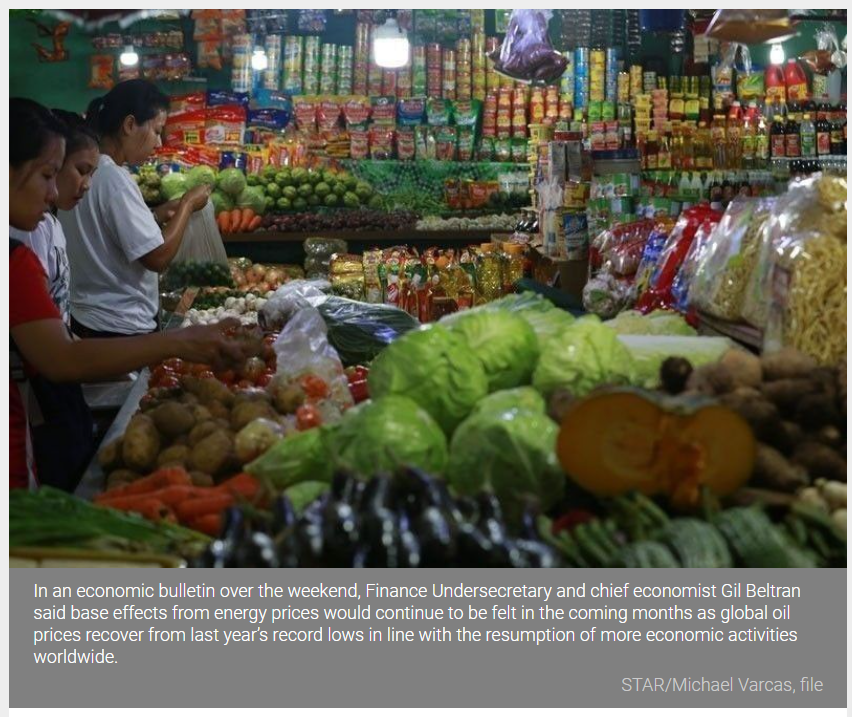Philippines: Inflationary pressures persist
MANILA, Philippines — Even as the rise in the prices of consumer goods was tempered last month, inflationary pressures remain due to the normalization of oil prices and still elevated meat prices, according to the Department of Finance (DOF).
In an economic bulletin over the weekend, Finance Undersecretary and chief economist Gil Beltran said base effects from energy prices would continue to be felt in the coming months as global oil prices recover from last year’s record lows in line with the resumption of more economic activities worldwide.
“Base effects from energy prices on year-on-year inflation will continue to be felt in the coming months,” he said.
Citing World Bank data, Beltran said Dubai crude price averaged at $23.27 per barrel in April 2020, and has since recovered to $64.77 per barrel last month for a 178 percent increase.
Headline inflation steadied at 4.5 percent in April as the continued hike in meat prices was offset by lower costs of other food items such as rice and vegetables.
Beltran said that while food inflation eased during the month, non-food price inflation rose at a faster clip of 3.84 percent in April from 3.21 percent in March.
In April, transport was the second largest contributor to the headline inflation rate, with the index growing by 17.9 percent from 13.8 percent in March. This index comprises fares, as well as petroleum and fuels, for which the country is dependent on overseas supply.
Meat prices, meanwhile, continue to rise at double-digit rate of 23.3 percent in April from 21.9 percent in March because of the impact of African swine fever (ASF) on supply.
A compromise on adjustments to tariff and importation levels for pork between the government and hog raisers has yet to be implemented, keeping prices high.
Beltran said that while imports can boost meat supply and keep prices under control, hog raisers embarking on a government-supported repopulation program may face higher production costs as prices of corn, an important component of animal feed, remain high.
“Hog repopulation will be the medium- to long-term measure to address the supply-side issue. Meanwhile, imports should be able to address the shortfall in domestic supply and help ease meat price inflation,” Beltran said.
Source: https://www.philstar.com/business/2021/05/10/2097031/inflationary-pressures-persist


 Thailand
Thailand




